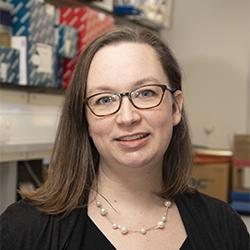In my lab, we explore how the environment (e.g., diet) that surrounds us influences not only our health but also the health of our children and grandchildren. This is a complex task because the environment can affect our physiology through interactions between genes, cells, tissues and metabolism. This is particularly important during the development of germ cells (e.g., sperm and eggs) and later the fetus when the ‘memory’ of the environment is programmed into the next generations. Our goal is to tease apart these mechanisms using mouse as a model and molecular biology techniques.
The ‘environmental challenge’ that we study is abnormal folate metabolism. Folate (also known as folic acid) is a vitamin that is best known reducing the risk of neural tube defects in a developing fetus. Its broad function in a cell includes DNA synthesis and gene regulation by providing the chemical required for the one/off switch (i.e., methyl group). We have a mouse model that has a mutation in a gene required for folate metabolism. The mutant mice have an increased risk for congenital malformation (e.g., neural tube, heart and placenta defects) and growth restriction during development. We observe these disorders in the mice that carry the mutation and also in their progeny and grandprogeny that are genetically normal. Our goal is to understand how this occurs by focusing on germ cells, the uterine environment and other maternal physiology that might influence this type of transgenerational inheritance.
By understanding how folate metabolism influences development and disease, we will be able to better predict the long-term effects of folic acid fortification programmes.


